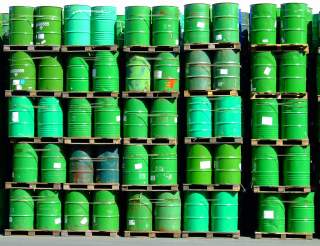Report: OPEC Asked U.S. To Stop Producing So Much Oil
New American oil production is undermining OPEC’s efforts to keep global prices between $50 and $60 per barrel, with current prices hovering around $47 a barrel.
The Organization of Petroleum Exporting Countries (OPEC) asked the U.S. to stop producing so much oil, according to a report Thursday.
OPEC’s report blames the U.S. in particular because hydraulic fracturing, or fracking, has greatly increased American oil production. The new production has led a lengthy period of very low oil prices. OPEC claims raising global oil prices will “require the collective efforts of all oil producers” and should be done “not only for the benefit of the individual countries, but also for the general prosperity of the world economy.”
New American oil production is undermining OPEC’s efforts to keep global prices between $50 and $60 per barrel, with current prices hovering around $47 a barrel.
“I think [OPEC] are now acutely aware that they don’t have the kind of influence they used to have 10 years ago, and that shale is now the swing producer in the market,” Tom Pugh, commodities economist at Capital Economics, told CNN Money.
As U.S. oil production continues increasing, OPEC oil gets edged out of the lucrative American oil market. America imported about 60 percent of its oil in 2007, but by 2014, the U.S. only imported 27 percent of its oil — that’s the lowest level since 1985, according to government data. The rising oil production has reduced demand for Saudi oil abroad too, keeping prices low.
The U.S. Energy Information Administration expects oil production to top 9 million barrels a day in 2017. The U.S. surpassed both Saudi Arabia and Russia in 2015 as the world’s largest and fastest-growing producer of oil.
OPEC de-facto leader, Saudi Arabia, is increasingly unable to control the global oil supply because of rising energy production in the U.S., Russia and Iran.
“Saudi Arabia is under extraordinary pressure both internally and externally,” Dr. Jean-Marc Rickli, a risk analyst at the Geneva Centre for Security Policy, told The Wall Street Journal.
The world’s biggest crude exporter is conceding ground to enact a steep oil production cut in order to prop up the low global price of oil, causing the Kingdom to rapidly lose market share and influence over other OPEC members.
The Saudis convinced OPEC to cut production to raise prices in November, but OPEC countries can’t cope with low crude prices and already appear to be cheating to balance their national budgets. Such cheating keeps oil from rising, further weakening Saudi control over OPEC.
Though Saudi Arabia can likely handle cheap oil better than other OPEC countries, it is expecting a budget deficit of $140 billion— roughly 20 percent of the country’s economy. The fiscal outlook for the country looks so dire when compared to 2013’s surplus of $48 billion, that the International Monetary Fund warned it could go through its fiscal reserves within five years. Saudi oil export revenues dropped 46 percent in just a year and the country is selling bonds for the first time since 2007.
Content created by The Daily Caller News Foundation is available without charge to any eligible news publisher that can provide a large audience. For licensing opportunities of our original content, please contact [email protected].
Image Credit: Creative Commons.

